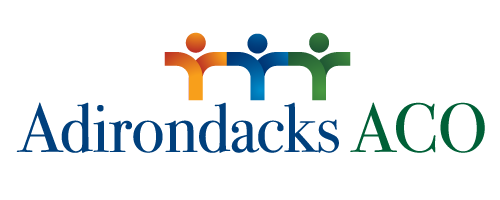Contract & Network Update
Adirondacks ACO 2020 Performance Results in Shared Savings
The ACO Board of Managers is pleased to announce the approval and distribution of shared savings for performance year 2020. Performance year 2020 is the first time since the development of the ACO in 2014 that a Medicare Shared Savings (MSSP) distribution will occur. The first installment of this distribution plan will include over $3.7 million dollars that is being shared with our participating provider partner organizations. This represents 98% of the savings earned with the 2% balance utilized to offset participant fees that support the ACO infrastructure.
As additional payer contract settlements are finalized and funds are received, a second distribution installment is expected to be made in early 2022.
Thank for your continued efforts and dedication to our population health efforts in the region. Despite the impact of the on-going response to the pandemic, the ACO’s overall quality was higher than prior performance years and our financial performance resulted in the highest amount of shared savings for distribution in our 7 year history.

COVID-19 Booster FAQs
|
October is National Breast Cancer Awareness Month
Now is the time to remind patients, family and friends to get screened!
Breast Cancer Resources: State Resources
- Frequently Asked Questions About the NYS Breast Cancer Screening Law
- New York State Department of Health Cancer Services Program
- New York State Medicaid Cancer Treatment Program Eligibility
- Breast Cancer Treatment – What You Should Know
Breast Cancer Education Materials
The North Country Care Coordination Collaborative (NCCCC)
The North Country Care Coordination Collaborative (NCCCC) training sub-group developed a Care Manager Training survey to help develop a training toolkit. The survey contained eight questions, including what type of care management agency they worked for. The choices were Inpatient, Primary Care, SUD/BH, or an agency not affiliated with a hospital or provider. The survey asked what the most challenging task or responsibility in their job was. To prioritize workforce development, the survey asked respondents to rank in order of importance training topics. There was also a free text option to indicate any issues not listed. The top three responses were:
- Burnout Management
- Sharing your “bag of tricks” for dealing with difficult patients/situations
- Vicarious Trauma and Self Care Strategies
The survey then asked what “bag of tricks” items would interest them in a brainstorming session, including a free text option for topics not listed. The top three responses were:
- How do I best support a difficult client or family?
- Exploring the boundaries for Care Coordination vs. Care Delivery
- Strategies to responding to anger or Client frustration
The final question was a free text opportunity to inform the sub-group of anything else they felt would enhance workforce development.
The NCCCC was pleased to have 138 respondents to the survey. The results were collated, and the subgroup is meeting regularly to create a toolkit to include: An inventory of available training, an inventory of available regional services, and a forum to share best practices on specific topics.
|
Quality & Performance Update
2022 MIPS Payment Adjustment
The Merit-based Incentive Payment System (MIPS), was designed to tie payments to quality and cost efficient care, improve care processes and health outcomes, increase use of healthcare information and reduce the cost of care. CMS has established criteria to determine whether providers are considered eligible clinicians, based on claims during the measurement year. CMS adjusts eligible clinicians’ pay based on how they “score” in four categories of metrics: Quality, Cost, Improvement Activities, and Promoting interoperability. The ACO submits the Quality component on behalf of the providers that practiced during the measurement year 2020 via the manual data abstraction and submission to CMS via their web interface. The categories of Cost and Improvement Activities the ACO receives auto credit for, since the providers are part of the ACO. Promoting interoperability must be reported by the practices to CMS directly, which focuses on electronic prescribing, health information exchange, provider to patient exchange and public health and clinical data exchange. The ACO receives an overall score based on the provider submissions. Below is the ADK ACO MIPS Performance Score.

|

ACO Spotlight

|
Resources
ADKs ACO and Highmark BS Collaboration Webinar: HEDIS 2022 Updates
Date: November 17, 2021
Time: 12:15 P.M. – 1:00 P.M
For more information contact Brenda Stiles
Excellus BlueCross ClueShield 2021 Fall Seminar Schedule
Join the Excellus BlueCross BlueShield Provider Relations team virtually for the 2021 fall seminar. You’ll gain valuable information on the latest administrative and operational updates, industry news, what’s new for 2022 and more!
Visit Provider.ExcellusBCBS.com/resources/management/staff-training to register for one of the following sessions:
|





